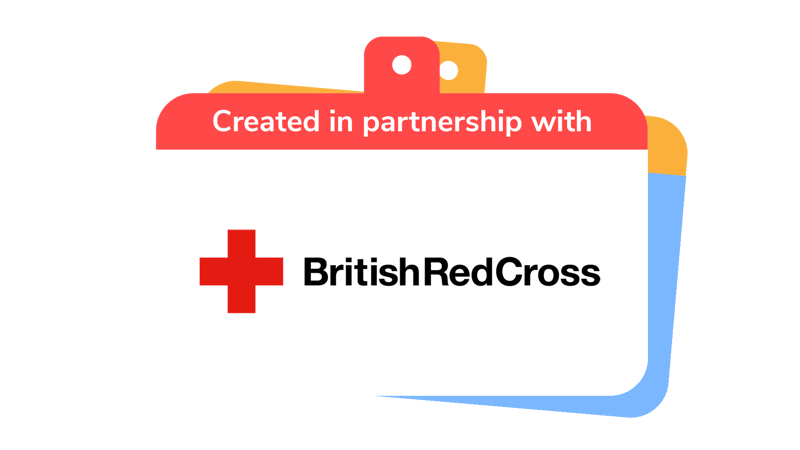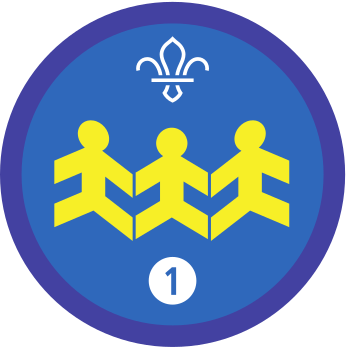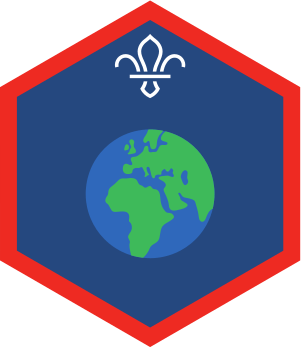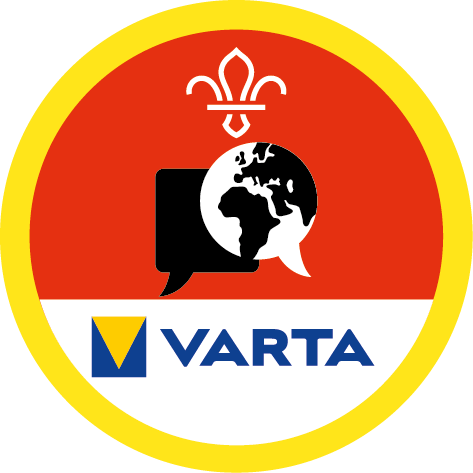
Someone like me
You’ll need
- A4 paper
- Pens or pencils
- Printed copies of the 'Someone like me' cards
This was an activity shared through the ‘Moving Connections’ heritage project. You can find out more in the Scouts’ Refugee response resource. It’s been adapted from an activity developed by the British Red Cross for Refugee Week in 2017 that celebrated our shared future.
Before you begin
- You will need 1 set of 12 cards per small group.
- Use the safety checklist to help you plan and risk assess your activity. Additional help to carry out your risk assessment, including examples can be found here. Don’t forget to make sure all young people and adults involved in the activity know how to take part safely.
- You could do this activity as part of World Refugee Day or Refugee Week in June.
Get started
- Everyone should get into small groups and each group should be given a set of 12 cards,
- The person leading the activity should explain that these cards have different things written on them that all describe different aspects of a person.
- Each group should look at each of the cards in turn. They could each take two or three cards and take turns to read them out.
The person leading the activity could also read out what is written on the cards to the group.
- The person leading the activity should ask everyone to imagine that the people described in the cards are coming to join their Scout group next week.
- I came to live in the UK when I was 12 years old, but I was not born here.
- I am learning English as a new language and studying Maths and IT.
- I like spending time with my friends.
- I’d like to be a doctor when I grow up.
- I enjoy food. I’ll eat almost anything!
- I like to play football.
- I enjoy watching action movies.
- I like to listen to Eritrean music, as I don’t understand the words in English music.
- I enjoy playing games with friends.
- I like to make films about refugees living in the UK.
- I enjoy school, but I worry when I have tests.
- The Red Cross helps me to settle into my local community.
Who would you get along with?
- Each group should consider the following questions. You may want to have paper and pens for each group to write down the questions or their ideas.
-
- Who they feel they have the closest connection with and why?
- Which of the people they think it would be easiest to make friends with and why?
- Who they would be most interested to meet and why?
- Is there anyone they think it would be harder to get to know? If so, why?
- Everyone should get back together as a whole group and share their thoughts.
The plot twist
- The person leading the activity should reveal to everyone that the cards they've been looking at are all aspects of the same young refugee from Eritrea, which is in East Africa. The cards have been inspired by what real refugees currently living in the UK have said.
- Everyone should come back together as a group and discuss the following questions:
-
- Does this additional information change how they think/feel? Why?
- Does it change how they would respond to/welcome the person into their section?
Reflection
Now, that everyone knows that these were all aspects of the same young person, what can we learn about our identity and about the identity of others? People might say that we all have complex stories, and we may have different backgrounds, but we can always find things we have in common.
It can be daunting joining a new group. How could we help new arrivals feel welcome? How can we get to know each other, and enjoy our shared interests and our differences?
Safety
All activities must be safely managed. You must complete a thorough risk assessment and take appropriate steps to reduce risk. Use the safety checklist to help you plan and risk assess your activity. Always get approval for the activity, and have suitable supervision and an InTouch process.
- Scissors
Supervise young people appropriately when they’re using scissors. Store all sharp objects securely, out of the reach of young people.
The questions can be simplified if needed, or additional questions could be added, according to the needs of the groups.
The groups can decide together who wants to read out the cards. If anyone would prefer not to read or write, that’s OK. They could be paired with a helper to read or write for them.
Helpers could support groups with reading, writing or help support and organise the discussions.
Some people might find it helpful to have the questions or keywords written down to help them to remember or process them.
All Scout activities should be inclusive and accessible.
Everyone could create their own 12 cards that represent themselves. People can see if they can identify which cards belong to which person in the group.
Plan how you could make a new arrival feel welcome in your group, with the Welcome new arrivals activity, created in partnership with Save the Children UK.
Discover more at https://www.redcross.org.uk/
Everyone should be encouraged and supported to share their thoughts.


